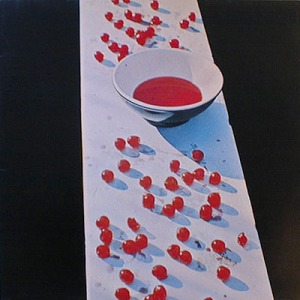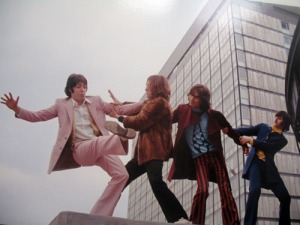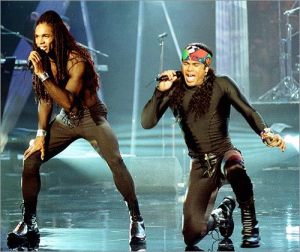Everyone knows that together, The Beatles were largely brilliant. Apart? Like so many bands that followed in their wake, they were sporodically brilliant, but never reached the consistant level that they had done together. The Beatles break up was hardly acrimonious, and there are plenty of veiled (and otherwise in the case of John) references to one another over the course of the following ten years. If you don’t really know anything about the solo work, there is some great stuff, but you have to be careful, because some of it, as we shall see, is a real mess.
1970:
 In 1970, Paul released McCartney, and in the press for the album officially announced what the music press already suspected (George and John had already got their albums out) that The Beatles had broken up, like Bryan Adams in the Summer of 69. This incensed John as it was he who had left the group, but it did him a favour in a way, as it briefly turned public view against Macca for breaking up the world’s biggest band. His first solo effort is an enjoyably low-fi affair, featuring some of his genuinely great work – Maybe I’m Amazed stands up to anything he ever recorded. Every Night is also great and deals with him being at a loss as to what to do post-Beatles. Most of the rest of the songs are thumbnail sketches of his love for The Lovely Linda.
In 1970, Paul released McCartney, and in the press for the album officially announced what the music press already suspected (George and John had already got their albums out) that The Beatles had broken up, like Bryan Adams in the Summer of 69. This incensed John as it was he who had left the group, but it did him a favour in a way, as it briefly turned public view against Macca for breaking up the world’s biggest band. His first solo effort is an enjoyably low-fi affair, featuring some of his genuinely great work – Maybe I’m Amazed stands up to anything he ever recorded. Every Night is also great and deals with him being at a loss as to what to do post-Beatles. Most of the rest of the songs are thumbnail sketches of his love for The Lovely Linda.
By contrast, George released All Things Must Pass, a gigantic triple album which finally got rid of all the songs he had been building up over the previous five years stuck behind John and Paul in the Beatle queue. It is (largely needless third record aside) a masterpiece, with Phil Spector on production duty it sounded even bigger than its triple status suggests. Wah-Wah directly referenced the argument with Paul from Let it Be, while My Sweet Lord and What is Life happily sit among the best things he ever wrote.
 If George was relieved to be out of the Beatles so he could do his own thing, John was angry about various things. He had entered Primal Scream therapy, which informed his first solo album Plastic Ono Band (officially titled John Lennon/Plastic Ono Band because it realeased alongside a Yoko Ono/Plastic Ono Band) a shouty masterwork railing against absolutely everything, from childhood abandonment (Mother) The Beatles (God) and his supposed roots (Working Class Hero). It is absolutely astonishing, a bold move for someone exiting the biggest pop band of all time.
If George was relieved to be out of the Beatles so he could do his own thing, John was angry about various things. He had entered Primal Scream therapy, which informed his first solo album Plastic Ono Band (officially titled John Lennon/Plastic Ono Band because it realeased alongside a Yoko Ono/Plastic Ono Band) a shouty masterwork railing against absolutely everything, from childhood abandonment (Mother) The Beatles (God) and his supposed roots (Working Class Hero). It is absolutely astonishing, a bold move for someone exiting the biggest pop band of all time.
Ringo meanwhile, just wanted to “do songs me mam wanted to hear” and so released Sentimental Journey a collection of his various family members favourite songs. Its a nice gesture really, and lovely for what it is. Perhaps all the Beatles solo albums sum up their respective personalities to some degree, and none more than Ringo’s. He is stood outside a pub on the front cover too, which probably is making as much of a statement as George sat by those three garden gnomes on the cover of his. He managed to get a second album out before the year was out Beaucoups of Blues, a country album (think Act Naturally or What Goes On), which is surprisingly enjoyable. It was however a commercial failure (even in America where country music is beloved) and so Ringo turned back to the movies for the time being. Read the rest of this entry »

